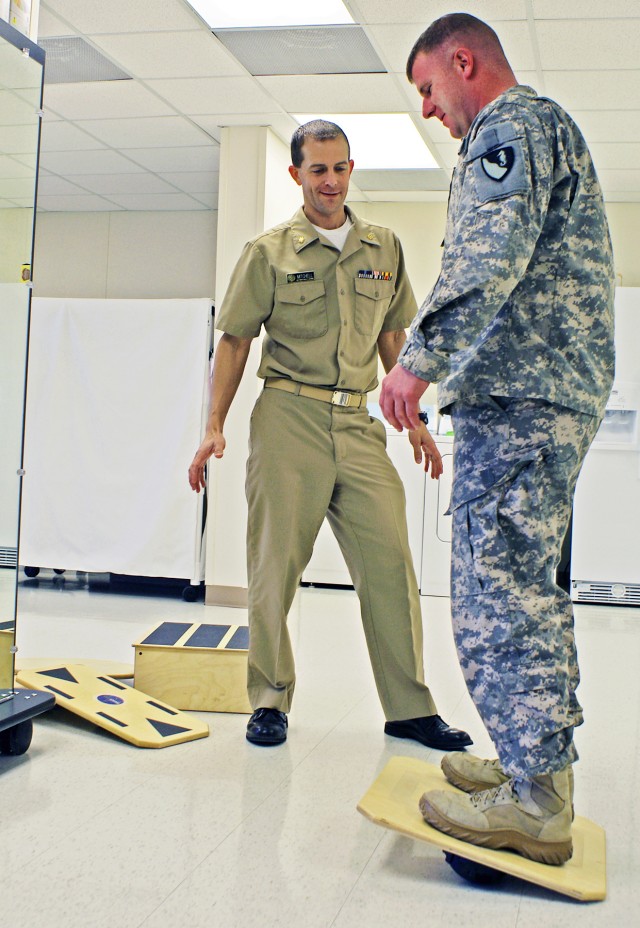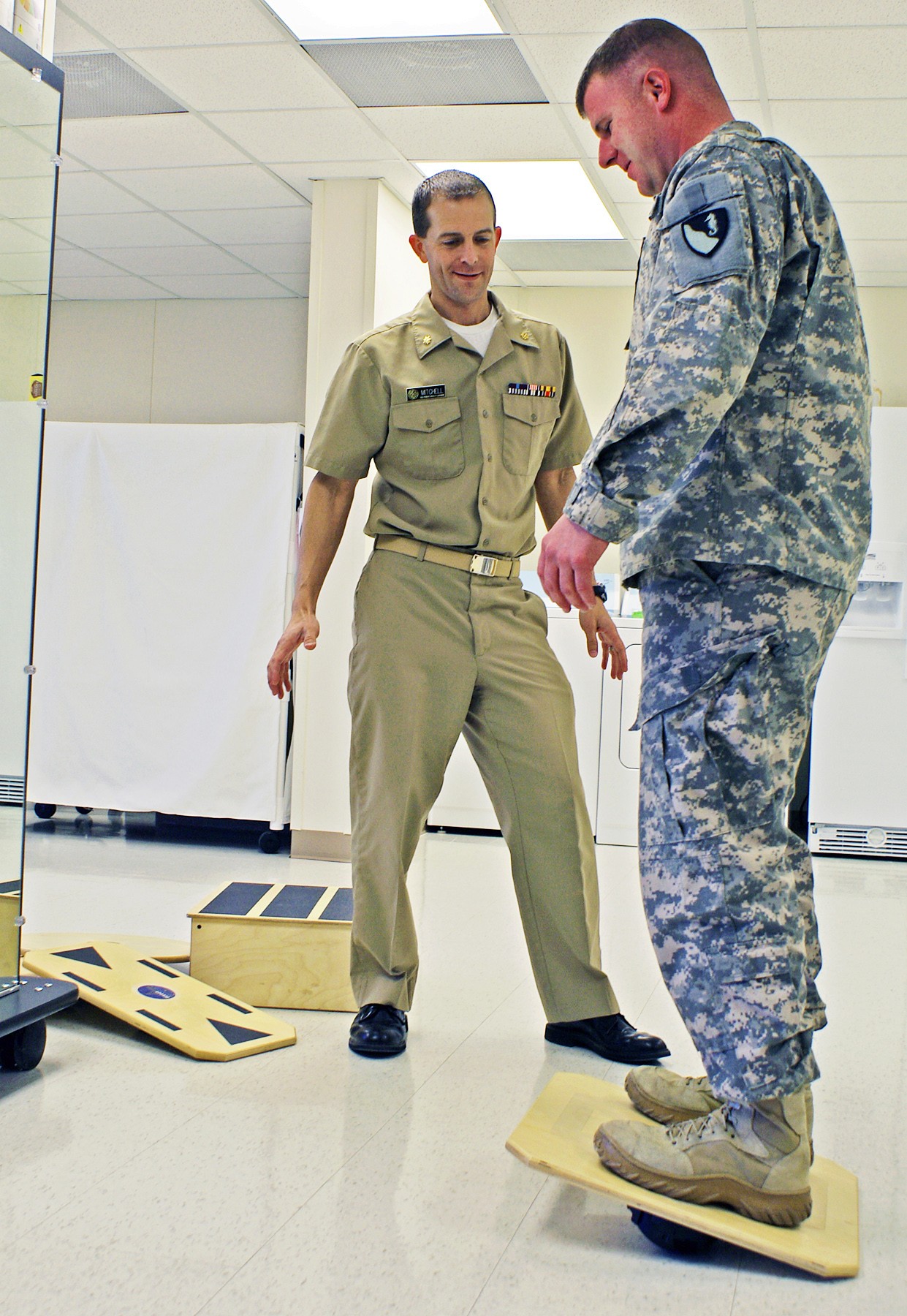FORT HOOD, Texas, March 22, 2011 -- Many people have experienced the effects of a concussion at some point whether on the battlefield or at home, but unless the injury is severe, it can be difficult to determine if treatment is needed.
So that Soldiers and family members are aware of brain injuries and when and where to seek help, Carl R. Darnall Army Medical Center, here, held an informative discussion with reporters, staff and patients on the causes, effects and treatment of traumatic brain injuries, referred to as TBIs.
The most important fact to remember when dealing with a TBI is that recovery is possible with rest and treatment, said Lt. Cdr. Scott Mitchell, a physical therapist with the U.S. Public Health Service who also is the officer-in-charge of the CRDAMC Traumatic Brain Injury Clinic.
"Most people who experience a concussion will recover with rest," he said. "Generally you won't need extensive medical care, but it is good to get seen and treated."
There are several signs and symptoms of TBI to be aware of after a head injury, including any loss of consciousness, loss of memory, confusion, disorientation, weakness, loss of balance, change in vision, sleep disturbances, nausea, irritability and depression.
According to Mitchell, the length of time a person experiences these kinds of symptoms is important when trying to determine whether to seek medical care.
"If a person has a head injury and they experience dizziness for a short period that goes away and doesn't come back, they probably won't need to seek medical care, but if they have prolonged symptoms, then they should be seen," he said.
Sgt. Darren Wing, a Soldier with Charlie Troop, 1-7 Cavalry, 1st Cavalry Division, has been receiving care at CRDAMC's Traumatic Brain Injury Clinic since early January after he sustained a head injury and broken nose when he was assaulted in Austin.
"I couldn't walk in a straight line, and I also had some memory and speech issues," he said. "I was taken to the hospital that night, and then that following Monday I was seeing my provider and I was referred right to the TBI clinic."
Wing said it has taken some time, but he is on the road to a full recovery.
"I've made huge strides. I've noticed huge changes between speech therapy and physical therapy here, and I'm almost back to where I need to be," he said.
Without the care he received, Wing said his recovery would have been much more difficult, and he encouraged others who think they may be suffering to seek help as well.
"Regardless if it was six months ago during a deployment or two days ago during a car crash, sporting event or whatever, you need to get checked out," he said. "You need to seek proper treatment for the injury."
Mitchell agreed with Wing's advice, but added, "The natural course of healing is that most people get better quickly after having a concussion. Even so, you should be evaluated to make sure everything is on track and to be educated on what to expect in the first one to three months following the injury."
"Ignoring signs and symptoms after a concussion can make symptoms seem worse and increase the time it takes for you to feel like everything is back to normal," he said. "So if you are in doubt, get checked out."
Related Links:
Defense Department makes 'great strides' in brain-injury care
TBI rehab gets dose of persistence on Capitol Hill
STAND-TO!: Traumatic Brain Injury
Defense Centers of Excellence for Psychological Health and Traumatic Brain Injury


Social Sharing